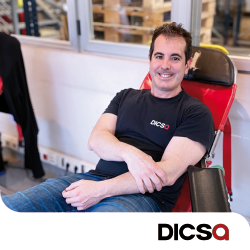¿Qué son las políticas de cookies y para qué se utilizan?
Este sitio web utiliza cookies y/o tecnologías similares que almacenan y recuperan información cuando navegas. En general, estas tecnologías pueden servir para finalidades muy diversas, como, por ejemplo, reconocerte como usuario, obtener información sobre tus hábitos de navegación, o personalizar la forma en que se muestra el contenido. Los usos concretos que hacemos de estas tecnologías se describen a continuación.
¿Qué tipos de cookies utiliza esta página web?
Cookies técnicas
Son aquellas que permiten al usuario la navegación a través de la página web, plataforma o aplicación y la utilización de las diferentes opciones o servicios que en ella existen, incluyendo aquellas que se utilizan para permitir la gestión y operativa de la página web y habilitar sus funciones y servicios, como, por ejemplo, controlar el tráfico y la comunicación de datos, identificar la sesión, acceder a partes de acceso restringido, etc.
Cookies de preferencias o personalización
Son aquellas que permiten recordar información para que el usuario acceda al servicio con determinadas características que pueden diferenciar su experiencia de la de otros usuarios, como, por ejemplo, el idioma, el número de resultados a mostrar cuando el usuario realiza una búsqueda, el aspecto o contenido del servicio en función del tipo de navegador a través del cual el usuario accede al servicio, etc.
Cookies de análisis o medición
Son aquellas que, tratadas por nosotros o por terceros, nos permiten cuantificar el número de usuarios y así realizar la medición y análisis estadístico de la utilización que hacen los usuarios del servicio ofertado. Para ello se analiza su navegación en nuestra página web con el fin de mejorar la oferta de productos o servicios que le ofrecemos.
Cookies de publicidad comportamental
Son aquellas que, tratadas por nosotros o por terceros, nos permiten analizar sus hábitos de navegación en Internet para que podamos mostrarle publicidad relacionada con su perfil de navegación.
¿Quién utiliza las cookies ?
Según quien sea la entidad que gestione el equipo o dominio desde donde se envían las cookies y trate los datos que se obtengan, podemos distinguir:
Cookies propias
Son aquellas que se envían al equipo terminal del usuario desde un equipo o dominio gestionado por el propio responsable de la web y desde el que se presta el servicio solicitado por el usuario.
Cookies de terceros
Son aquellas que se envían al equipo terminal del usuario desde un equipo o dominio que no es gestionado por el responsable de la web, sino por otra entidad que trata los datos obtenidos través de las cookies.
- Esta página web utiliza Google Analytics, un servicio analítico de web prestado por Google, Inc., una compañía de Delaware cuya oficina principal está en 1600 Amphitheatre Parkway, Mountain View (California), CA 94043, Estados Unidos (“Google”).
Para más información consulte: Cómo utiliza Google las cookies
La información que recogen los complementos externos de Google en nuestro Sitio Web, incluyendo la dirección IP del usuario, puede ser transmitida a Google y almacenada en sus servidores. Esta información es gestionada enteramente por Google. Estas cookies no identifican al usuario personalmente a menos que tenga activa una sesión en Google, quedando en ese caso vinculado con dicha cuenta de Google. Para más información consulte: Tipos de cookies que utiliza Google
Se hace uso del complemento Google Maps para visualizar ubicaciones geográficas (nuestras oficinas u otras localizaciones).En algunas partes de la web se muestran vídeos incrustados de Youtube. Las cookies implementadas por Google en cualquier página que incluya un vídeo de Youtube se usan para medir el número y el comportamiento de los usuarios de YouTube, incluyendo la información que vincula la visita a nuestro Sitio Web con su cuenta de Google en el caso de tener activa una sesión.
Para más información consulte la Política de Privacidad de Google: Política de privacidad
- Esta página utiliza la plataforma de marketing automations Sales Manago. Para más información sobre cómo funciona la monitorización y el tipo de información que recoge https://support.salesmanago.pl/contact-monitoring-principles-of-operation-and-scope-of-collected-data/
- Esta página utiliza la pasarela de pagos Stripe. Para más información sobre el tipo de información que recoge consulte https://stripe.com/es/privacy
Periodo de conservación de las cookies
Según el plazo de tiempo que permanecen activadas en el equipo terminal podemos distinguir:
Cookies de sesión
Son un tipo de cookies diseñadas para recabar y almacenar datos mientras el usuario accede a una página web. Se suelen emplear para almacenar información que solo interesa conservar para la prestación del servicio solicitado por el usuario en una sola ocasión (p.e. una lista de productos adquiridos).
Cookies persistentes
Son un tipo de cookies en el que los datos siguen almacenados en el terminal y pueden ser accedidos y tratados durante un periodo definido por el responsable de la cookie, y que puede ir de unos minutos a varios años.
Relación y descripción de cookies utilizadas en esta web
Las tablas que publicamos a continuación recogen de forma esquematizada las cookies anteriormente descritas y utilizadas en la web dicsaes.com:
Cookies de uso interno – DICSA Cookies
Cookie
|
Nombre
|
Objetivo
|
Periodo de Conservación
|
|---|
|
DICSA Essential Site Cookie
|
JSESSIONID
|
Una cookie estándar generada por el servidor, necesaria para la gestión de sesiones del sitio web.
No almacena información sensible y deja de funcionar cuando se abandona el sitio web o se cierra el navegador.
|
Sesión
|
|
DICSA User Information
|
idioma, language, style
|
Una vez que un usuario ha seleccionado el idioma del sitio web, esta cookie le permitirá navegar sin necesidad de volver a indicar esta información.
|
1 Mes
|
|
DICSA Cookie Status
|
cookies-accept2
|
Si está activa, muestra que un usuario ha decidido aceptar otras cookies del sitio actual.
|
2 años
|
Cookies de terceros, analíticas y de publicidad comportamental
| Cookie |
Nombre |
Objetivo |
Periodo de Conservación |
|---|
|
Analítica
|
_ga
|
Se usa para diferenciar entre usuarios y sesiones. La cookie se crea al cargar la librería javascript y no existe una versión previa de la cookie _ga. La cookie se actualiza cada vez que se envía los datos a Google Analytics.
|
2 años |
|
Analítica
|
_gat
|
Se usa para diferenciar entre los diferentes objetos de seguimiento creados en la sesión. La cookies se crea al cargar la librería javascript y no existe una versión previa de la cookies _gat. La cookie se actualiza cada vez que envía los datos a Google Analytics.
|
1 minuto |
|
De terceros
|
APISID, HSID, NID, SAPISID, SID, SSID
|
Cookies utilizadas por Google para almacenar las preferencias del usuario y la información durante la visualización de las páginas con los mapas de Google en ellos. Para más información sobre cómo Google usa las cookies, visite su página de Política de Privacidad de Google.
|
2 años |
| Comportamental |
Smuuid
|
Cookies de visitas anónimas,
|
duración 10 años, o hasta que se borren las cookies. |
| Comportamental |
Smclient
|
Cookies monitorización de contactos.
|
duración 10 años, o hasta que se borren las cookies. |
| Comportamental |
smform
|
Cookies para los formularios de contacto (pop up, landing page, iframe)
|
duración 10 años, o hasta que se borren las cookies. |
| Comportamental |
smg
|
Cookies para identificar el usuario, identificación UUID
|
duración 10 años, o hasta que se borren las cookies. |
| Comportamental |
smvr
|
Cookies para identificar las visitas, codificado en base64
|
duración 10 años, o hasta que se borren las cookies. |
| Comportamental |
smwp
|
Cookies para las webpushes,
|
duración 10 años, o hasta que se borren las cookies. |
| Comportamental |
Smg
|
Cookies para la identificación global del cliente.
|
duración 10 años, o hasta que se borren las cookies. |
| Comportamental |
smcrsaved
|
Cookie para poder saber si el identificador se ha guardado en el sistema SM.
|
duración 10 años, o hasta que se borren las cookies. |
| Comportamental |
smOViewsPopCap
|
Cookie de información sobre el capping del pop up.
|
duración 10 años, o hasta que se borren las cookies. |
Cómo deshabilitar las Cookies en los principales navegadores
Tienes la opción de permitir, bloquear o eliminar las cookies instaladas en tu equipo mediante la configuración de las opciones del navegador instalado en su equipo. Al desactivar cookies, algunos de los servicios disponibles podrían dejar de estar operativos. La forma de deshabilitar las cookies es diferente para cada navegador, pero normalmente puede hacerse desde el menú Herramientas u Opciones. También puede consultarse el menú de Ayuda del navegador dónde puedes encontrar instrucciones. El usuario podrá en cualquier momento elegir qué cookies quiere que funcionen en este sitio web. Puede usted permitir, bloquear o eliminar las cookies instaladas en su equipo mediante la configuración de las opciones del navegador instalado en su equipo:
Google Chrome
Mozilla Firefox
Internet Explorer
Safari para IOS (iPhone, iPad)
Transferencias de datos a terceros países
Puedes informarte de las transferencias a terceros países que, en su caso, realizan los terceros identificados en esta política de cookies en sus correspondientes políticas (ver los enlaces facilitados en el apartado “Cookies de terceros”).
Elaboración de perfiles
Tal como ha quedado expresado en la política de privacidad (https://dicsaes.com/es/politica-privacidad), con el uso de alguna de estas cookies se procederá a la elaboración de un perfil de usuario basado en la monitorización de sus actividades de navegación en nuestro Sitio Web para comprender mejor sus preferencias e intereses, predecir su comportamiento en la navegación y adaptar nuestras comunicaciones de marketing a su perfil, mostrándole productos que puedan ser de su interés, en base a las preferencias que haya demostrado mediante su navegación.
En todo momento se solicitará su consentimiento para usar estas cookies y generar su perfil de usuario. Además, no se tomarán en ningún caso decisiones automatizadas en base a dicho perfil.
Más información sobre tratamiento de datos
Visite nuestra política de privacidad en https://dicsaes.com/es/politica-privacidad
Actualizaciones y cambios en la política de cookies:
Esta Política de Cookies puede ser modificada en función de exigencias legislativas, reglamentarias, o con la finalidad de adaptar dicha política a las instrucciones dictadas por la Agencia Española de Protección de Datos, por ello se aconseja a los Usuarios que la visiten periódicamente.




